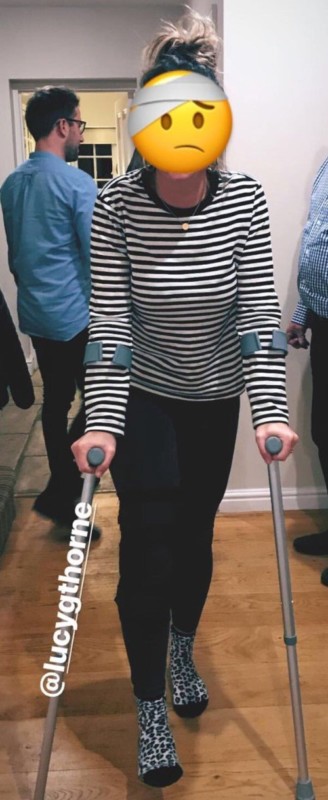
We can all admit that we have an accident-prone side to us – whether it is through skiing, playing football, rugby, tennis, squash or any other sporting accidents, or in my case, slipping on wet leaves on the pavement! However you trip, medial knee pain is very prevalent in our West London clinics.
Below, our Physiotherapist Lucy Mitchell shares her experience of recently injuring her knee and gives her advice on recovery.
3 weeks ago I slipped and twisted my knee, feeling an immediate acute sharp pain. My heart dropped and I knew straight away I had strained my MCL, the extent of how badly I was yet to know. MCL strains occur when the knee goes into a valgus position, usually from a twisting motion of direct impact. MCL strains are actually very common with twisting movements, and if managed correctly will heal well and with no long-term effects.
ADVICE:
If you are unlucky enough to find yourself with a similar injury, follow these simple steps below for your road to recovery:
Immediate Ice and Rest
This will decrease the swelling in the first instance and lessen the pain slightly. Brace your knee up. You can seek advice from a professional with which brace and settings you will need. Having a brace will help the ligament fibres repair due to the restricting knee range of movement, I have been able to wear my knee brace and treat a full day of patients without affecting my healing process.
Compex Rehab Training
Even as a physiotherapist who works with an abundance of lower limb injuries, I could not believe how quickly my quadriceps and glutes ‘turned off’. It is important to keep the quadriceps firing as quickly as possible post-injury. The Compex is a great way to do this. I have been using it three times a week as well as my ‘SKI-HAB’ home exercise program for my rehab exercises.
For more information on The Compex, please do not hesitate to get in touch and we can talk you through options.
MCL Strains
There are three different grades of MCL strains and tears and is therefore very important to seek professional advice rather than self-diagnosis and treatment.
How Bad Is It?!
GRADE 1: mild sprain with local tenderness and little to no laxity on valgus stress test.
GRADE 2: significant pain around the MCL and pain and joint laxity with valgus stress test.
GRADE 3: complete tear of the MCL and valgus test has severe laxity with the patient feeling unstable.
The degree of damage to the MCL will affect the time scale of recovery, but having said that every patient is different. My advice would be get started with physio as soon as possible. If ligament injuries are not managed correctly they can cause ongoing chronic problems.
With my ski holiday fast approaching I have been on a mission to get ‘SKI-FIT’. I have been a compliant patient and I can tell you – physio really DOES help! I am close to 3 weeks post injury and progressing each day with a goal to get back to SKI ASAP and safely.
Here at Kensington Physio and Sports Medicine, we have Physiotherapists who can treat and offer you the best treatment plan to manage an MCL strain or tear with little disruption to your everyday life.
